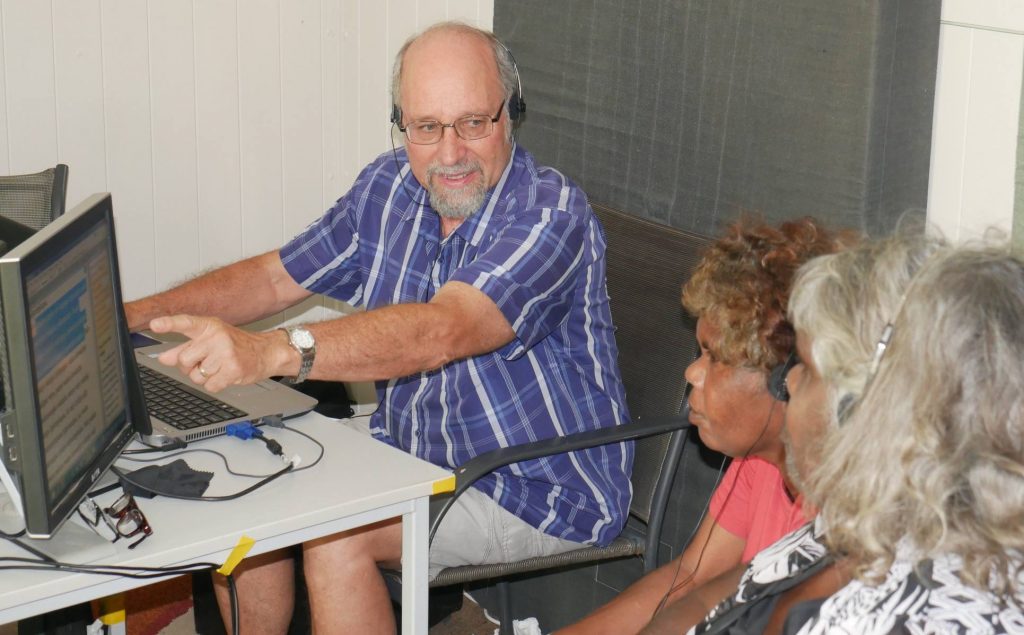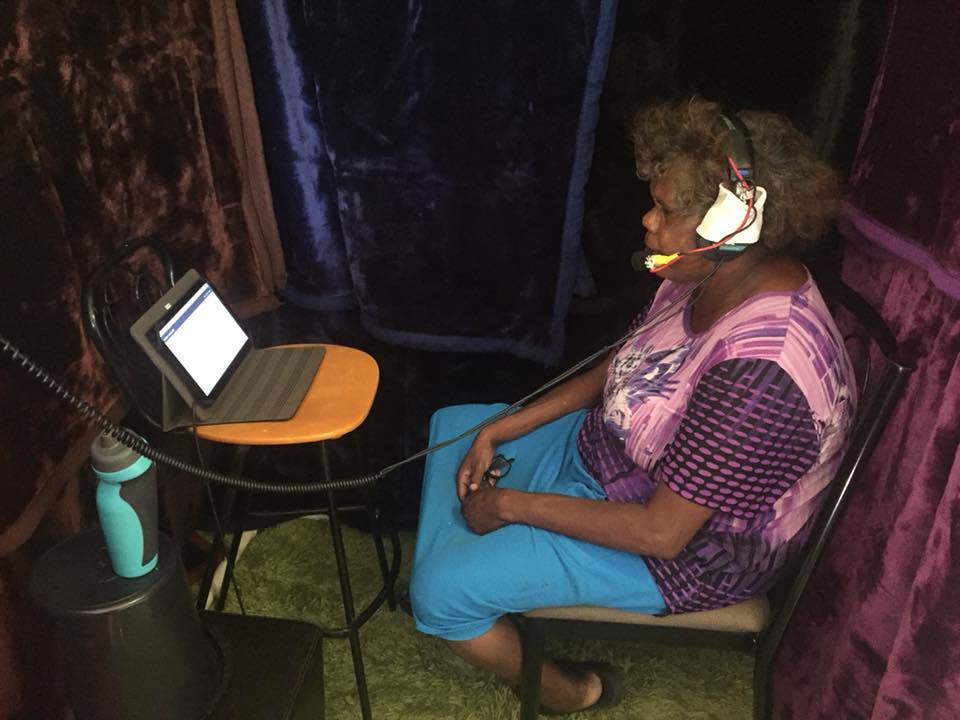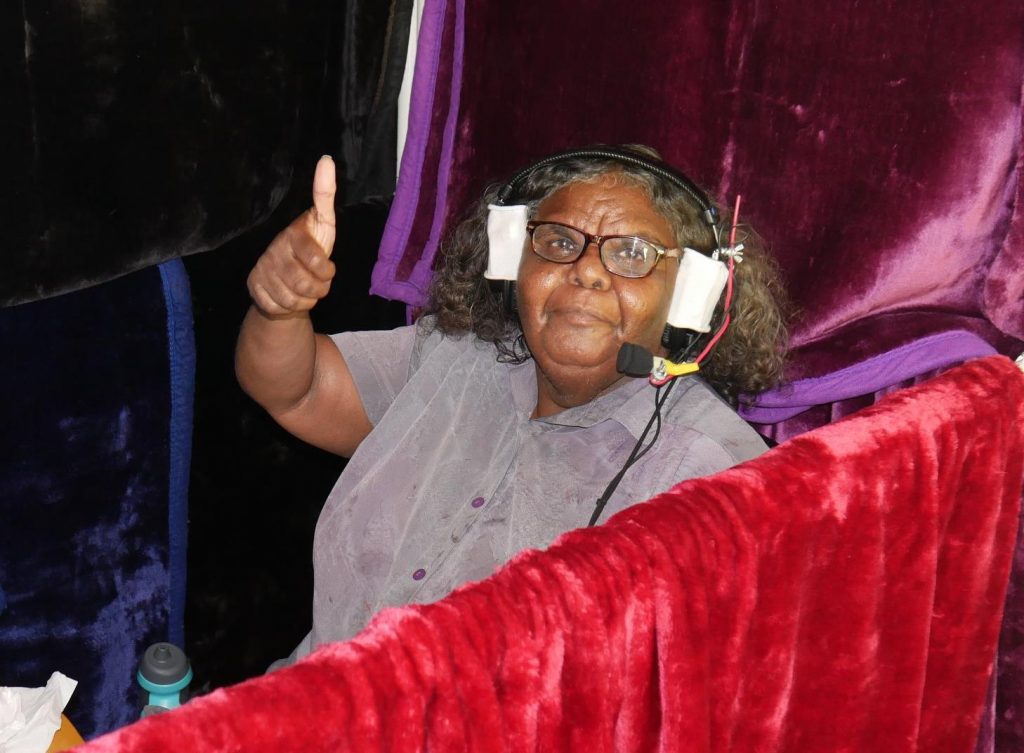Pitjantjatjara New Testament audio to 'last forever'
Translators travel thousands of kilometres to be part of historic recordings
The final phase of a dramatic, multi-voice audio version of the Pitjantjatjara New Testament is almost finished. The mammoth task, which has involved more than 40 Pitjantjatjara speakers and over 500 recording hours is set to be completed by mid-year.
Pitjantjatjara is a language of Australia’s Central Desert. The recording is being done through a partnership between Bible Society Australia, the Pitjantjatjara Bible Translation Project and Faith Comes By Hearing.
“God’s message is totally true and he left it long ago for us to obey.” – Inawinytji
Only 14 voices were needed to record the New Testament’s 160 different characters with “speaking-parts,” says Bible Society Australia’s Paul Eckert, who is leading the project after spending a lifetime learning the Pitjantjatjara language in ministry in Central Australia. Yet enthusiasm for the project was so high in the Pitjantjatjara community that the number of readers was expanded to 40, “so that as many as possibly can be involved.”
Most of the speakers travelled hundreds of kilometres to get to Alice Springs for the second recording session this month.

Paul Eckert in the studio with some of the Pitjantjatjara recording speakers.
Inawinytji is a Pitjantjatjara speaker from Ernabella (also known as Pukatja) in the APY Lands in northern South Australia. She told Eternity that she made the long journey to be part of the recordings, “to listen and make sure that what is spoken is correct, for God’s message is totally true and he left it long ago for us to obey.” She is also working on translating the Book of Jeremiah.

Paul Eckert says the audio recording of the New Testament is an “exciting stage” for the whole Pitjantjatjara Bible project.
“We’ve been wanting to do this for a long time,” he told Eternity. “I think it will be really important. [It will] help people to really understand the Scriptures, particularly those who don’t read very well, who prefer to hear and listen. And also, it will maintain the language strong over the years, as people continue to hear it and learn it and understand it.”
“The Pitjantjatjara readers are doing a great job and are loving it.” – Paul Eckert
Paul says having the Bible in a person’s “heart language” is extremely important.

“The language of the heart is the language that you think in, the language that you dream in. It’s the language that comes to you first. It’s particularly the language that you feel most comfortable in.
“The word of God spoken out loud is powerful and meets people in their deepest being.”
He says it has been a privilege to be part of the audio recording project, as he watches some of the translators he has been working with stumble upon new meanings in the biblical texts after hearing them spoken out loud for the first time.
“The Pitjantjatjara readers are doing a great job and are loving it. One lady came out of the recording booth after reading a few chapters of Hebrews and said that she had been so touched by the message that she was almost in tears. So it’s not just a mechanical exercise for them,” says Eckert.
The first translation of the New Testament into Pitjantjatjara was dedicated in 2002. In 2011, a renewed push to complete a full Bible in the Aboriginal language came from people in the Pitjantjatjara community, who approached Eckert and Bible Society Australia to start translating the Old Testament. Once complete, it will be Australia’s first full Bible in a traditional Aboriginal language.
The first book of the Old Testament to be translated into Pitjantjatjara was the Book of Daniel, which was dedicated in 2016.


